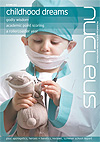doctors' industrial action
21 June 2012 saw the first industrial action by UK doctors since the 1970s. A ballot undertaken during May had shown strong support for 'industrial action short of a strike' among British Medical Association (BMA) members. This followed a dispute over changes to the NHS pension scheme which have already seen higher contribution rates, and will see a fall in the value of pensions for most members.
There had never been plans for an all-out strike, and BMA members were urged to attend work as normal, but only to undertake emergency work during the day. Reports on the actual effects of the strike varied, with government sources claiming that only 8% of doctors took any action. However there were reports of cancelled operations and GP surgeries offering only emergency appointments.
Media reaction seemed mixed. Many newspapers gave hypothetical figures of the pensions achievable by the best-paid doctors, which still compare well with those available in many other schemes, and talked of patient anger. Others did note that the new plans would see NHS staff pay substantially more than civil servants and local government workers for very similar pension provision. A further concern of the BMA was that the NHS pension scheme had already been substantially reshaped in 2008.
At the time of going to press, no further industrial action is planned and the BMA is taking part in further negotiations. Whether to participate or not in such action is a difficult question for Christians. CMF's blog looked at the issue during the ballot process. A number of informal verbal discussions by the author amongst CMF members revealed considerable variation in planned responses to the action.
telegraph.co.uk 21 June 2012; bbc.co.uk 21 June 2012; bma.org.uk 23 July 2012
breaches of the Abortion Act
In a controversial move, the Care Quality Commission (CQC) was asked in March to investigate reported breaches of abortion law by a number of abortion providers. This followed allegations aired in February that abortions had been authorised for the purposes of sex-selection. The CQC reported in July that 14 NHS hospitals (including a number ofprominent teaching hospitals) were 'presigning' the legal forms required by the Abortion Act. UK law states that all patients seeking an abortion should be seen by two doctors, who are both required to sign a form indicating that they believe the abortion to meet the criteria set down in law. Pre-signing of these forms prior to assessing at least the patient record clearly breaches the law, and the Health Secretary's statement at the time is explicit that the police as well as professional bodies will be involved in further investigation.
Both abortion providers and opposition politicians have attacked the investigation. Whatever your views on the exact workings of the current abortion law, this case is a stark reminder that absolute integrity in signing documentation is essential.
Christian doctor reprimanded
Dr Richard Scott, an experienced Christian GP who practises in Kent, has been given a warning by the GMC. At the end of a protracted case, the GMC decided on 14 June 2012 to issue the warning, relating to a consultation in 2010 when Dr Scott had discussed matters of faith with a patient.
The GMC's adjudication notes that the patient and Dr Scott had differing perceptions of what had been said. The patient did not appear in person at the hearing to be cross-examined, instead giving evidence by telephone. The GMC report stated that their concerns in this case were over the manner in which religion had been discussed, and the distress said to be caused to the patient. The warning will remain on Dr Scott's record for five years.
The GMC does not ban discussion of faith with patients per se, and indeed the written judgment reminds readers of this. The report reads 'In considering the facts of this case, the Committee noted that the GMC's guidance confirms that discussing personal beliefs may, when approached sensitively, help to work in partnership with patients and allow doctors to address a patient's treatment needs. As such the discussion of religion within consultations is not prohibited...'
Paul Diamond of the Christian Legal Centre represented Dr Scott, and said that 'He does believe Christianity has been singled out for adverse treatment and believes this to be a wider trend in our society to marginalise the Christian faith. He does not believe any other religion would have been singled out.'
A number of concerns have been raised about the conduct of the case, not least that the National Secular Society supplied transcripts to the GMC of two media interviews they considered relevant, that appeared to play a significant part in the hearing.
The sensitive matter of discussing faith with patients is covered by the GMC's guidance Personal Beliefs and Medical Practice, currently under review.
bbc.co.uk 14 June 2012; gmc-uk.org
14 June 2012
consultation on new GMC guidance
A consultation has recently closed on a new draft of Good Medical Practice – the GMC guidance against which the fitness to practise of UK doctors is measured. A number of documents were produced, including one on Personal Beliefs and Medical Practice. There is much in the new draft that is helpful – for example 'all doctors have personal values which affect their day to day medical practice', and 'doctors should be free to practise medicine in accordance with their beliefs, provided that in doing so they are not denying patients access to appropriate medical treatment'.
Many Christian doctors are concerned about the possible impact of two particular areas of the new guidance. A footnote to paragraph 13 suggests that discussions of faith are only appropriate if a doctor has reason to believe such a conversation would be welcome, and gives the example of a patient carrying a Bible or Qu'ran as reason to believe this. If brought into force, this would be significantly stricter than current guidance.
A second problem is the interpretation of the 2010 Equalities Act in the draft guidance The Act is called upon both to forbid differential contraceptive provision for married and unmarried women, and to suggest (again in a footnote) that a general provision for conscientious objection does not apply to gender reassignment procedures.
CMF Chief Executive Peter Saunders commented 'The problem is that 21st century British medicine now involves practices which many doctors regard as unethical.'
'This latest guidance by the GMC will therefore be seen by many as a further attack on the right to practise independently in accordance with one's conscience which lies at the heart of being a true health professional.'
GMC Chief Executive Niall Dickson said 'We know that personal beliefs are central to the lives of many doctors and patients.
'Our draft guidance seeks to balance doctors' desire to practise medicine in line with their own personal beliefs, whilst ensuring that they are providing patients access to appropriate medical treatment and services.' M.oA final version of the guidance is expected to be published before the end of 2012.
telegraph.co.uk 23 May 2012;
dailymail.co.uk 23 May 2012
BMA decisively rejects assisted suicide neutrality
A vote at June's British Medical Association (BMA) Annual Representative Meeting (ARM) rejected a change in BMA policy on assisted suicide. The issue had been discussed a number of times before, with the Association choosing to adopt a neutral position in 2005, a decision reversed at the next possible opportunity in 2006. The motion to change position again was proposed by Professor Raymond Tallis, chairman of a group called 'Health Professionals for Assisted Dying'.
Speaking in opposition, Dr Dai Samuel said 'We must question what as doctors we stand for. I simply stand for looking after my patients and providing high quality care.
'I do not consider the killing of patients - whatever the reason is - justified. That is murder and I cannot commit that offence.'
Outgoing chairman of BMA Council Dr Hamish Meldrum also spoke against the move, saying 'I think adopting a neutral position is probably the worst of all options. Neutrality does tend to exclude us from the argument, an argument which would have a huge bearing on the working lives of doctors.'
In another vote on ethics at this year's ARM, a motion was passed supporting access to non-directive counselling for women considering abortion.
dailymail.co.uk 27 June 2012
circumcision controversy in Germany
In a controversial decision, a regional court ruling in Cologne, Germany, stated that circumcision amounted to 'bodily harm'. Subsequently, German medical bodies have told doctors not to perform circumcisions.
Circumcision of boys is common in both Jewish and Muslim communities. Both trace the history of circumcision back to Abraham's covenant recorded in Genesis 17. Jonah Sievers, Chief Rabbi of Lower Saxony said: 'Circumcision as the expression of the Covenant between God and his people is such an ancient and entrenched ritual. It's more than just a ritual. It's performed by Orthodox and Liberal Jews alike. It's a core part of the religion.' British Chief Rabbi Jonathan Sacks was also reported to be against the ruling, though he suggested that the ruling had probably been aimed more at Muslims than at Jews.
The decision has been criticised by German Chancellor Angela Merkel, the main German political parties, and religious groups. A subsequent vote in the German parliament has called on the government to introduce a law in the autumn protecting the right of parents to circumcise male children. However the UK's Secular Medical Forum has written to Germany's Chancellor Merkel supporting the original court ruling.
Questions about circumcision are not confined to Germany. Norway's ombudsman for children's rights, Dr Anne Lindboe suggested that Jews and Muslims should instead choose a symbolic, non-surgical ritual. She said 'Muslim and Jewish children are entitled to the same protection as all other children.'
forward.com 6 August 2012;
bbc.co.uk 19 July 2012
further LCP controversy
The Liverpool Care Pathway (LCP), commonly used to guide care of terminally ill patients, has come under further attack. A letter, signed by six geriatricians in conjunction with the Medical Ethics Alliance (MEA), implied that availability of resources might be playing a part in decisions to place patients on the Pathway.
The LCP aims to improve care in the last days and hours of life. It covers physical, psychological, social and spiritual care, and is intended to bring practice common in hospices into acute hospital and community settings. The Department of Health has recommended the LCP as a best practice model.
The number of patients being placed on the LCP at the end of life has gradually increased. The MEA is not the first body to be concerned – a recent Daily Telegraph headline read 'Hospitals letting patients die to save money'. The suggestion is that the withdrawal of certain treatments on the LCP may be hastening their death. However the LCP's latest version is clear that it should be expected neither to shorten nor to prolong life.
The charity Alert is promoting the carrying of simple printed cards, which state 'Please do not give me the Liverpool Care Pathway treatment without my informed consent or that of a relative.' Not everyone agrees that the Pathway is a source of problems. As well as Department of Health support, both the Care Not Killing Alliance and the Association for Palliative Medicine have been supportive of the LCP, citing a 2009 audit that repudiated many previous criticisms.
telegraph.co.uk 8 July 2012;
carenotkilling.org.uk 15 September 2009
































